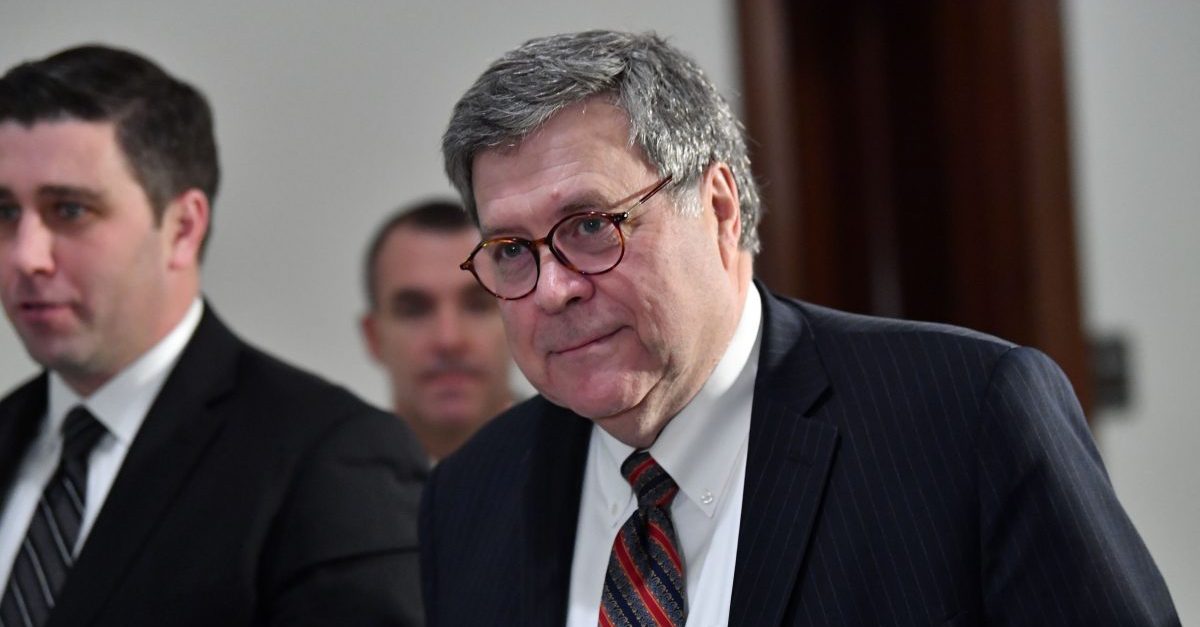
Attorney General William Barr just attempted a “mine-is-bigger-than-yours” power play in an ongoing government lawsuit with Twitter. The move pits national security directly against the First Amendment, and the impending drama promises to be high.
First, a little about the underlying lawsuit, Twitter v. U.S., which has been going on for about four years.
In the wake of the Edward Snowden revelations, several technology companies (such as Google and Microsoft) sought permission to disclose information to their users about how often they receive requests for data from the federal government. The companies argued that specific information about the number of government requests was important to the public to quell wildly inaccurate speculation about how much data the government would be gathering in the name of national security. Basically, the companies were trying to stop the public from freaking out by providing statistics showing that the actual numbers really aren’t so bad.
Twitter wasn’t thrilled with the outcome of the negotiations undertaken by Google and others, and in 2014 it filed suit in the Northern District of California to compel the government to allow it to report openly on surveillance requests it receives. The lawsuit was an attempt to change legal limitations on reporting details from reporting a range of surveillance requests (such as 0-499 within a six-month period) to actual, specific numbers, and it was all based on the First Amendment.
What’s happening with the case right now?
Lawyers are billing hours and filing motions. U.S. District Court Judge Yvonne Gonzalez Rogers is currently considering whether Twitter’s lawyers should have access to some 2016 FBI documents (known as the “Steinbach Declarations,” because they originated from Executive Assistant Director Michael Steinbach) that explain what kind of trouble could result if Twitter were able to report specific information about surveillance requests.
And what, exactly, Did A.G. Barr do?
Basically, he threatened to burn the whole thing down.
Although the litigation seeks answers to complex and important questions from the judiciary, Barr made his position clear: either Judge Rogers rules in his favor on the confidentiality of the Steinbach Declaration, or Barr whips out his state secrets privilege and ends the entire litigation. Barr filed a formal declaration on Friday that delivered his ultimatum to the court; his words left little to interpretation:
But to the extent the Court may still order the disclosure of the Classified Steinbach Declaration to Plaintiff’s counsel, the Attorney General has now asserted privilege over that document.
…After personal consideration of the matter, the Attorney General has determined that disclosure of that information, even to Plaintiff’s counsel, reasonably could be expected to cause significant harm to the national security.
Barr’s position is that the judge herself may review the Steinbach Declaration in camera (in chambers), but only ex parte, (without showing it to anyone from Twitter, or even to Twitter’s lawyers). Otherwise, according to the attorney general, there is a risk of, “exceptionally grave damage to national security.”
Barr’s declaration and assertion of state secrets privilege brings the issue of the Steinbach Declaration (and perhaps the entire litigation) to something of a stalemate. To be sure, Barr’s move will continue to be harshly criticized by those who see real value in the fight to make government surveillance more transparent.
An egregious abuse of the state secrets privilege. The government’s litigation tactics here have less to do with protecting secrets than with keeping the public in the dark about surveillance that has far-reaching implications for individual rights. https://t.co/IAcqpfU9eg
— Jameel Jaffer (@JameelJaffer) March 18, 2019
AG Barr asserted the state secrets privilege for the first known time since he was sworn in last month, using the controversial legal tool in a 1st Amendment lawsuit brought Twitter to publish a more complete account NSLs and FISA orders via @joshgerstein https://t.co/a40f6Ll12X
— Katie Bo Williams (@KatieBoWill) March 18, 2019
We’ll keep you posted as Judge Rogers makes her ruling. Until then, we’ll have to be satisfied imagining this exchange:
“Grave damage to national security?”
“Is there any other kind?”
Follow Elura on Twitter @elurananos
[Image via Nicholas Kamm/AFP/Getty Images]
This is an opinion piece. The views expressed in this article are those of just the author.